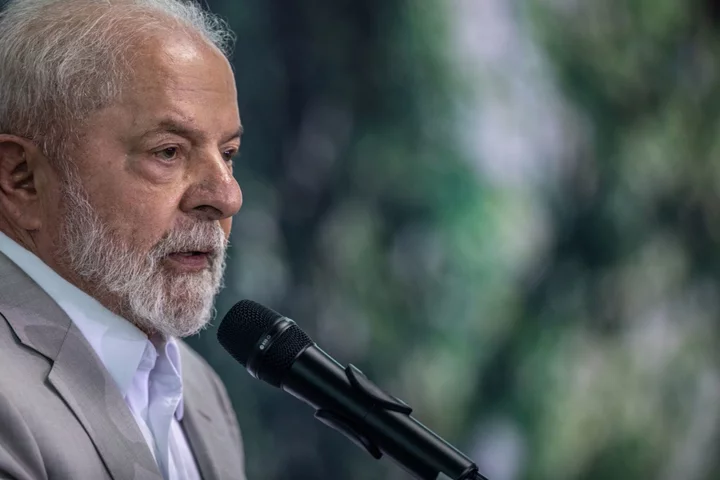President Luiz Inacio Lula da Silva on Friday unveiled a $350 billion infrastructure investment program designed to boost Brazil’s economy and kickstart a green transition.
Most of the amount - $264 billion - will be invested through 2026. The leftist leader and his allies have pitched the plan as a Brazilian version of laws backed by President Joe Biden that sought to stimulate the US economy with roughly $1 trillion in new infrastructure projects and clean energy initiatives.
The proposal carries the same name of an investment plan Lula created in 2007, during his previous presidency — Growth Acceleration Plan, or PAC.
This time, however, Lula’s government says it will pay special attention to his environmental agenda and campaign promises to prioritize sustainable economic development.
It will rely on a mix of federal funds, concessions and public-private partnerships to help finance a combination of transportation, sanitation and ecological transition projects.
The program will include $220 billion from public funds and $125 billion from the private sector, according to a statement on Friday. Energy transition projects will receive a total of $110 billion.
Brazil’s state-controlled oil company, Petroleo Brasileiro SA, will again play a relevant role in the new investment program. The oil giant has a $78-billion, five-year strategic plan and is mulling an increase for the period between 2024 and 2028. It plans to earmark as much as 15% of total investments for low-carbon projects.
The previous Growth Acceleration Plan helped increase public investment under Lula and his successor, former President Dilma Rousseff. It led to the construction of hundreds of highways, bridges, hydroelectric projects, refineries, and transmission lines.
But many of its projects, which were handled by large local infrastructure companies, later faced investigations over corruption allegations. The program helped lead to the rise of Operation Car Wash, the years-long corruption probe that put hundreds of business and political leaders — including Lula, temporarily — behind bars.
Others drew backlash over their environmental impact. The PAC program financed the construction oil refineries, like a major petrochemical complex in Rio de Janeiro, and the Belo Monte dam, a hydroelectric project in the Amazon rainforest region that drew fierce opposition from Indigenous tribes and environmentalists.
The PAC’s legacy may create challenges for the new program. The corruption investigations drove many of the involved companies into bankruptcy. The ensuing end of an era of massive public investment, meanwhile, hit firms that hadn’t been implicated, often resulting in large debts, layoffs and legal disputes.
As a result, the government will have to carry out large projects without many of the major contractors that delivered them in the past.
Author: Martha Beck, Simone Iglesias and Mariana Durao

